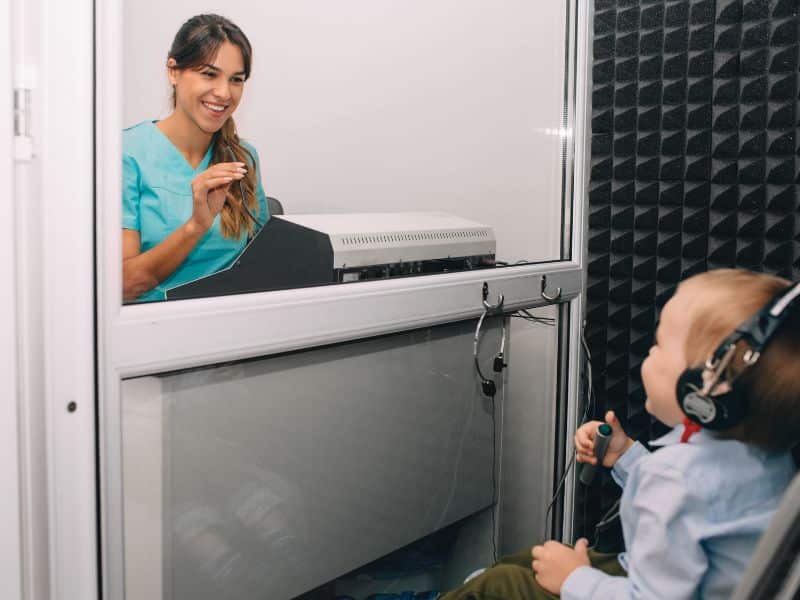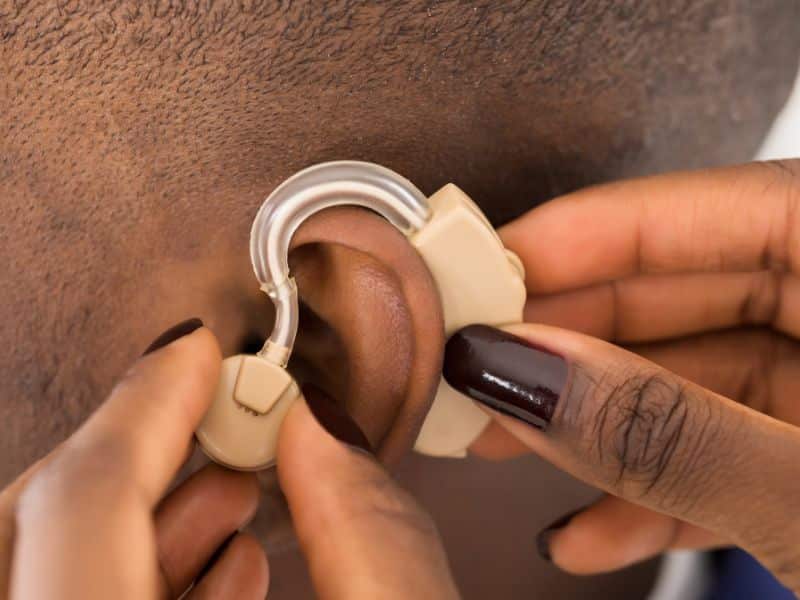
Audiology – The A To Z Of Allied Health
In this week’s A to Z of Allied Health we present audiology. Many of us will recognise audiologists as healthcare professionals who work with people who have hearing loss and other hearing problems. What many people may not know, however, is that they also work with individuals who have balance disorders. Audiologists work with people of all ages: from young babies through to older adults. They aim to improve their patients’ quality of life by maintaining and improving their ability to hear, process, and understand sounds. Audiologists help in the diagnosis of balance disorders, which is helpful for developing a symptom management and rehabilitation plan.
What does an audiologist do?
Using a range of tools and technologies (e.g., behavioural audiometry, electrophysiological methods, caloric testing) audiologists perform hearing, auditory function, balance, auditory processing, and neural function assessments. They provide education, counselling, and rehabilitation support.
Audiologists have a good working knowledge of a range of hearing protection products (e.g., noise, swimming or sleeping plugs) and newer technologies to improve their patients’ listening and hearing experience. They prescribe and fit hearing aids, and other devices such as FM systems, bone conduction aids, and TV listening devices. They work collaboratively within a multidisciplinary team to support the management of individuals with implantable hearing devices, cochlear implants, and other devices.
Audiologists can have a hands-on role in ear wax removal and management, and rehabilitation for tinnitus (ringing in the ears), communication, and balance disorders.
Where do audiologists work?
Audiologists work in numerous countries including Australia, the USA, Canada, the UK, and New Zealand. Audiologists typically work in healthcare settings including hospitals, rehabilitation facilities, and in community-based private practice, including hearing aid franchises, and VAs. They can also work in educational settings, including early learning centres, schools, and universities. Very few audiologists are directly employed by residential aged care settings or skilled nursing facilities.
What are the professional education and regulatory frameworks for audiologists?
In Australia, aspiring audiologists must complete a recognised Masters level degree in a clinical audiology education program, comprising a minimum of five years of study. Similarly, in Canada, a Masters program in audiology is the minimum requirement for audiologists, along with 350 hours of supervised clinical practice.
Prospective audiology students in the USA must first complete a bachelor’s degree with an audiology-related major (e.g., communication disorders), before they are eligible to pursue a three- or four-year audiology degree (Au.D.) or a Ph.D. degree. In the UK, there are several pathways to becoming an audiologist. Training can be provided through a National Health Service (NHS) program where students complete a Bachelor of Science degree and then an Audiology Diploma. Alternatively, aspiring audiologists in the UK can enrol in a Bachelor of Science degree and then specialise in an audiology-related specialist subject.
To be eligible for membership with the New Zealand Audiological Society, prospective audiologists must complete a two-year long Master of Audiology degree, be awarded a Certificate of Clinical Competence, and then undertake a further one-year of supervised practice.
Audiology is a self-regulated profession in Australia, the USA, Canada, the UK, and New Zealand.
Audiology workforce considerations
 There is a strong association between ageing and hearing loss. In light of global demographic trends toward ageing, and increasing rates of chronic and complex health conditions, we are seeing consistent and increasing demand for audiology services. Despite this trend, recruiting and retaining audiologists is a key challenge for the profession.
There is a strong association between ageing and hearing loss. In light of global demographic trends toward ageing, and increasing rates of chronic and complex health conditions, we are seeing consistent and increasing demand for audiology services. Despite this trend, recruiting and retaining audiologists is a key challenge for the profession.
Find out more about audiology
Here are some links to websites and resources for and about Audiologists:
- Audiology Australia
- The American Academy of Audiology
- Canadian Academy of Audiology
- Speech-Language & Audiology Canada
- British Society of Audiology
- New Zealand Audiological Society
If you have questions about the audiology profession, or if you wish to share your experiences as a audiologist, please leave a comment below.
Subscribe to Allied Health Insights to receive incisive and up-to-date allied health commentary and solutions. | Browse our range of insights into the allied health professions here.
If you offer professional development or business support services for audiologists or their employers, please list your business on our Service Directory.
AHP Workforce provides allied health workforce planning, strategy and consulting for employers, managers and public sector stakeholders. For allied health workforce solutions, contact us today.





